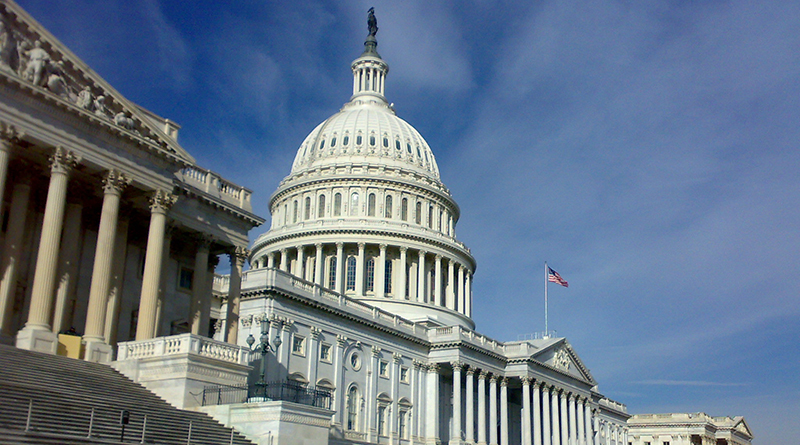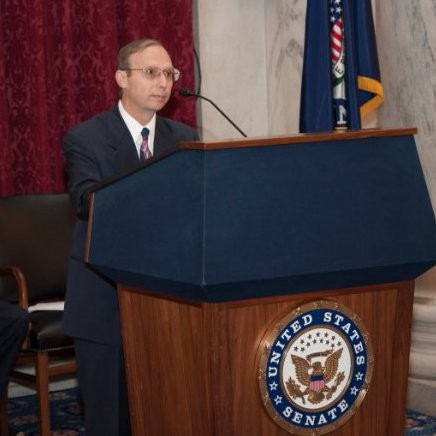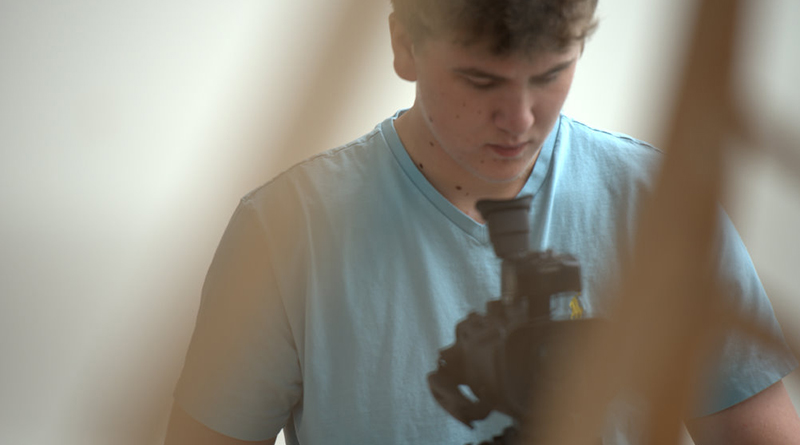
A Letter for Alzheimer’s Advocacy Accepted into Congressional Record
By Mike Nickas
Michael Ellenbogen’ has written a letter regarding the importance of advocacy for Alzheimer’s disease and dementia. On September 21, that letter was published by the Congressional Record in a statement by Michael G. Fitzpatrick—a member of the US House of Representatives out of Pennsylvania’s 8th Congressional District.
Ellenbogen was diagnosed with Alzheimer’s at just 49 years of age. The diagnosis, however, came ten years after he had been showing symptoms. Ellenbogen was a high-level manager of a bank when he realized he was having trouble remembering extension numbers and direct report names, among other work-related subjects.
“I am so thankful to still be here,” states Ellenbogen in his letter. “Many of my friends who were living with dementia have died and others are no longer capable of speaking. I am one of the lucky ones.”
Some of the topics behind Alzheimer’s advocacy that Ellenbogen discusses include expenses and death rate from the disease.
“Dementia, including Alzheimer’s, is the most expensive disease we face. It is costing us more than heart disease and cancer. It is the third cause of death in the United States; more than 500,000 people die from Alzheimer’s each year!”
Ellenbogen stresses how investing into funds for the disease may benefit the public, stating that in 2016, $236 billion will be spent on Alzheimer’s in terms of care and medication.
“Our investment today will lead to huge savings for the government and public, not to mention the lives saved,” writes Ellenbogen.
[expand title=”CLICK HERE TO VIEW THE FULL LETTER“]
RECOGNIZING THE IMPORTANCE OF ADVOCATING FOR THOSE WITH ALZHEIMER'S AND
DEMENTIA
______
HON. MICHAEL G. FITZPATRICK
of pennsylvania
in the house of representatives
Wednesday, September 21, 2016
Mr. FITZPATRICK. Mr. Speaker, I include in the Record the following
letter by Michael Ellenbogen.
I am so thankful to be still here. Many of my friends who
were living with dementia have died and others are no longer
capable of speaking. I am one of the lucky ones. My
Alzheimer's is progressing very slowly. While that is good
news it is also bad news. I will be forced to endure the
worst part of this disease even longer than most. Knowing
what I know now that will be like being tortured until I die.
While I try to stay positive these days and live life to the
fullest, I am in pain every day from the frustration of not
being able to be the person I was once. I continue to decline
in to a childlike state.
Dementia, including Alzheimer's, is the most expensive
disease we face. It is costing us more than heart disease and
cancer. It is the third cause of death in the United States;
more than 500,000 people die from Alzheimer's each year! We
all get caught up in the big numbers, so I will break them
down so they are more relatable.
41,666 is the average monthly death rate;
9,615 is the average weekly death rate;
1,369 is the average daily death rate;
57 is the average hourly death rate.
This is equivalent to almost three 747s crashing every day.
Yet there is much neglect and discrimination regarding
funding for Alzheimer's and related dementia research.
Preventative measures for breast cancer, heart disease and
HIV have all made tremendous progress since the federal
government made significant investments into research.
Comparable investments must be made for dementia so we can
accomplish the same successes, while saving millions of lives
and trillions of dollars.
If we don't act now this disease has the potential to
bankrupt this county. This is the most expensive disease in
America. In 2016 $236 billion will be spent on Alzheimer's in
terms of care and medication, with Medicaid and Medicare
spending $160 billion. And unless you take action, the cost
to Medicare alone will increase 365 percent to $589 billion
by 2050.
Our investment today will lead to huge savings for the
government and public, not to mention the lives saved. People
with dementia are faced with discrimination at many levels
and they lose their civil rights. That must change; we are
still people and deserve to be treated as such. A person with
cancer would never be treated the way we are. We need you to
start making more of an effort to educate the public and
restore our rights.
A few years ago I would have said I had no hope, but that
has changed to 2.5 percent. I do believe we are closer to a
cure today based on what has been learned from all the
failures. I am so grateful that the budget has been increased
to $991 million, but that is still far short of the two
billion dollars that was said was needed years ago.
In my opinion we need a czar for dementia just like Vice
President Joe Biden is to cancer and it sure worked for HIV.
We are definitely at the tipping point. You have the power to
make this happen. Please, I implore the House of
Representatives, the Senate and the respective appropriations
committees: Make the hard choices; increase funding for
Alzheimer's disease by at least one billion dollars. Do
everything necessary to ensure that Alzheimer's disease gets
the exposure, commitment and funding necessary to change the
course of the disease.
If you have not yet been touched by this devastating and
debilitating disease it's just a matter of time.
Regards,
Michael Ellenbogen,
(Advocate for all of those living with dementia, who can no
longer speak, write, or have passed).
[/expand]
The complete letter can also be read here: https://www.congress.gov/congressional-record/2016/09/21/extensions-of-remarks-section/article/E1326-3
Here is a brief 40 second clip from Michael Ellenbogen’s appearance on our series Exploring Different Brains:
Be sure to check out Michael’s full interview on Exploring Different Brains here: http://differentbrains.com/alzheimers-40-michael-ellenbogen-edb-33/

From Michael’s LinkedIn: “I am a writer. I am a husband. I am a father. I was a high level manager. In 2008, I was diagnosed with Alzheimer’s disease after struggling to get a diagnosis since my first symptoms at age 39. As one of the more than 5 million people living with this debilitating disease, I currently live every day to make a difference. In fact, I am now an advocate for the education and eradication of this disease.
Many people think Alzheimer’s disease affects our senior generation, but they are so wrong. I started having symptoms at age 39. They refer to people like me as having Young Onset Alzheimer’s Disease, or YOAD. Not many people are even aware of YOAD. My wife, who is in the medical field, was not even aware of this. The only people who seem to know about it are the caregivers and the people affected, who will most likely pass away within 8 – 10 years.
As of today, there is NO cure or any way to slow its progression. Even worse, this disease will bankrupt our health system if we do not act now. Dementia care costs 1% of the world’s gross domestic product (GDP).
Every 3 seconds someone, somewhere will start developing dementia. They will never see the children get married or hold their grandchildren. It could be you or someone in your family. ☀️You must act today. This is the worst way to die and we all have a social responsibility to do something about it. ☀️
Over 20 years of proven experience in the telecommunication industry in the roles of Network Operations Manager, Help Desk Manager, Project Manager, Analyst, and Technician. Designed, built, and managed world class mission critical Data Center and Network Operations Center. Analytical and proactive thinker experienced in customer service, change management, procurement, and disaster response, as well as security and environmental maintenance.”




